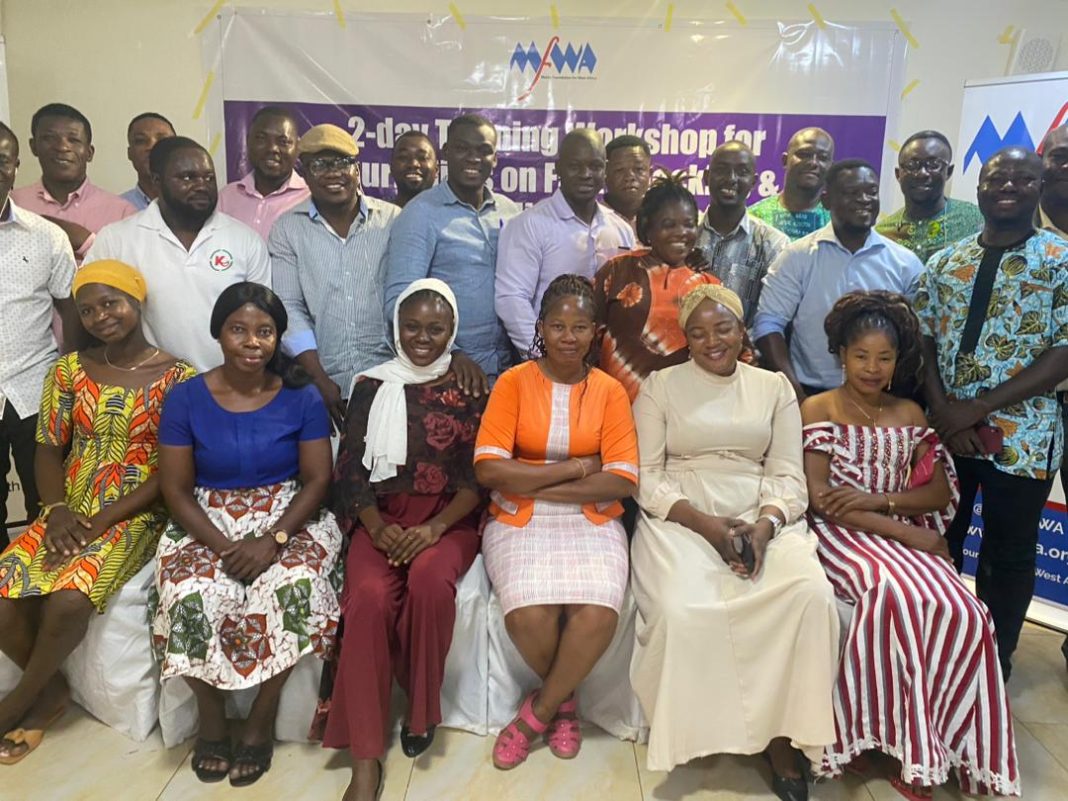The Media Foundation for West Africa (MFWA) has trained 125 journalists across the country on fact-checking and countering mis-disinformation in Ghana. The purpose of the two-day training series was to expose the journalists to concepts such as information disorder, fake news, and misinformation, how pervasive they are, how they manifest, as well as their impact on peace and democratic governance.
The second component of the training provided a deep dive into some fact-checking and verification tools that can be used to identify and counter misinformation, as well as fact-checking standards and ethics. In Tamale, the journalists were brought together from the Upper East, Upper West, Northern, North East, Savannah, and Bono East regions. Similar training was organised in Kumasi, Ho, and Accra.
A facilitator and staff of the Media Foundation for West Africa, Paul Kofi Gozo, speaking to the media in Tamale, bemoaned that misinformation and disinformation have the propensity to affect a country’s democracy and again cause harm to individuals and institutions.
“Social media has made it simple for us to create and consume information, and because of that, a lot of people misinform or disinform people. We realised that until we update the skills of journalists in helping to fact-check claims that have the propensity of misinforming the public, then whatever we are going to do will have varied impacts on our peace and governance”
He said it was expected that the journalists, after the training, would be able to use the fact-checking tools they were introduced to ascertain information before disseminating them.
The training was done with funding support from the Foreign Commonwealth and Development Office (FCDO). The training was specifically targeted at journalists working with radio stations in districts that share boundaries with Burkina Faso, Togo, and Cote D’Ivoire and journalists with an interest in learning more about mis-disinformation challenges and how to use fact-checking tools to counter mis-disinformation.
A facilitator, and lecturer with the Ghana Institute of Journalism (GIJ), Stephen Tindi, mentioned, among other things, financial incentives, political advancement, and falsehood to push forward a particular interest as reasons why people create or share wrong information, either knowingly or unknowingly.
For the public not to fall prey to mis-disinformation, Mr. Tindi said it was important for the public to be circumspect and scrutinise the information they receive before they consider sharing “and if you are unsure, just stop it, you don’t lose anything if you don’t share”
“Anytime you come across information, ask yourself certain questions like, what is the motivation of the sender of the information. If you suspect that that information is to inflame passion, please do not share. The other one is that you can call a friend to find out or check on a more established, credible media organisation. And if the established media organisation doesn’t have that piece of information, then it is probably not true”, he added.
The lecturer applauded the Media Foundation for West Africa for organising the training to enable journalists to counter mis-disinformation. He encouraged media training schools in Ghana to include components of fact-checking in the training of media professionals.
Some of the beneficiaries shared their experiences of having been exposed to how to fact-check claims and promised to make good use of the training in their field of work.
Source: A1Radioonline.com|101.1Mhz|Joshua Asaah|Tamale|Ghana




